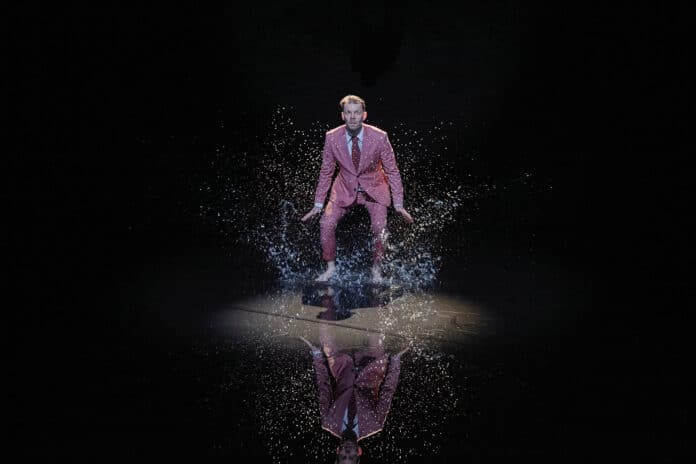Seldom has mental health been as mainstream in Icelandic culture and society as after the success of the theatre play „Be a wolf!“ in the Icelandic National Theatre. It is based on an award nominated autobiographical narrative by Héðinn Unnsteinsson. 10 October is the World Mental Health Day.
“Be a wolf!” is a monologue which can be described a story about a struggle of the mind, madness and redemption. It takes us on an insane journey through dangerous parts of the mind, into a world of anarchy and desperation and back again.

Ambiguity of mental illness
What characterizes „Be wolf is!“ is that it is seen from the inside, not the outside. The specatator is confronted with the ambiguity of being branded mentally ill.
„I have never denied the experience of people of insanity or insanity as such“, explains Unnsteinsson. „However, the concept of mental illness is a subjective evaluation of a subjective phenomenon. To be diagnosed with depression one has to have had six symptoms over a period of two months. Why not eight symptons in three months?“
The plays won 7 Awards at „Gríman“, the Icelandic Theatre Awards 2021. It has already been seen by 11,000 and will continue its run this following winter at the National Theatre of Iceland.
Why now?
But why such huge interest? Why now?

„The Book of Werewolves“ is about lycanthropy and how people, who were different, including many who had some kind of disorders, were cast out of society. „Wargus estus!“ „Be a wolf!“ It tells the stories of Scandinavian, European, German and French werewolves. We also have metamorphoses in the Icelandic Sagas, including Egil´s saga. I studied all of this in relation with, of course the wolf, but also „luna“ which connects to „lunacy“, and being outcast from soceiety. I wrote about this on top of the anarchy or mania, depression, and the metamorphosis.“
Not only has „Be a wolf!“ been well attended in the theater, but in connection with the play the theater, the Ministry of health and NGOs organize a seminar on mental health that was broadcasted live on national television.
„We got quite a lot of feed-back and the debate was very good,“ Unnsteinsson says.
The author, who is a government official serving in the Prime Minister´s office, has not only been active in issues concerning mental health for two decades, but is also a former staff member of the World Health Organization (WHO).
World Mental Health Day

Unnsteinsson echoes the words of the UN Secretary-General, in is message on the international day, when he says that the effects of COVID-19 on mental health could outlast the pandemice. „This is something we have been conscious of almost from the beginning,“ Unnsteinsson says, putting on the hat of chairman of an NGO focusing on mental health.
While Iceland is devoting closer to 12% of the health budget to mental health, than the 2% global average quoted by the Secretary-General, Unnsteinsson points out that the extent of the sector is closer to 30%. With COVID-19 coming on top of that this requires a robust reponse. „We are just not there yet.“






